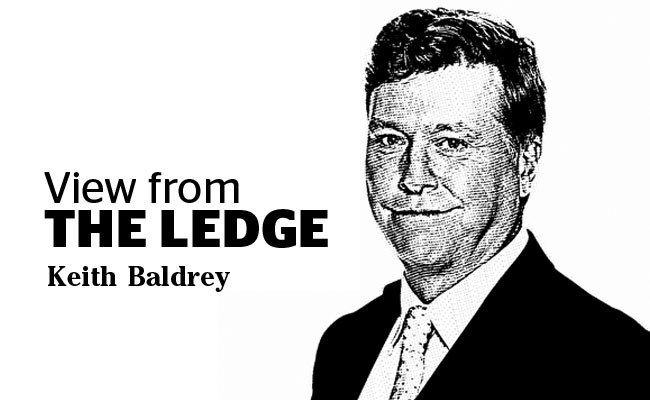One of the more provocative reactions to the B.C. Liberal government’s latest budget didn’t come from one of the usual suspects — industry associations, unions or various interest groups — but from an organization trying to sound the alarm bell when it comes to helping younger people.
And part of that reaction zeroed in on B.C.’s escalating health-care spending. It wasn’t a call for even more spending (the usual reaction one hears all the time when it comes to health care) but quite the opposite in fact.
It came from University of British Columbia professor Paul Kershaw, the founder of the Generation Squeeze Campaign, which is trying to make what it calls the “generational spending gap” an important issue in advance of the next election.
Kershaw noted that a half-billion dollars will be added to the health-care system in the coming year, followed by similar annual increases in future years. In the government’s three-year fiscal plan, health-care spending is projected to climb a whopping $1.5 billion over that period.
That is a staggering amount of money, yet this huge increase barely gets even mentioned anymore. In Finance Minister Mike de Jong’s 24-page budget speech, health care garnered just 11 paragraphs of attention.
To put this kind of spending escalation in context, the funding lift for health will be about 10 times that of new money being put into the education system. It is about eight times as much as additional funding for social services, and almost 15 times greater than the projected increase for children and families.
Kershaw notes that a plebiscite on how to fund $250 million worth of transit projects annually was recently held, yet no one has proposed a plebiscite on whether even more money should be spent in another area of government service.
He argues this gargantuan annual increase in health-care funding is not only unsustainable, but that it soaks up money that could be used to assist a sector of society that is being left behind in increasing fashion on many fronts: young people.
Kershaw says young working adults today earn, on average, $9,000 less than the same demographic did in 1976. When you throw in the fact that housing has become almost unaffordable in many areas of the province, the result is approaching crisis proportions.
He says annual government spending per retiree is around $45,000 in B.C., while spending on those under the age of 45 is just $12,000.
Younger people find themselves having to work in more than one job, often for low wages. A university degree is no longer a guarantee of a full-time, financially rewarding job.
The latest government budget took some steps to assist younger people in accessing housing, but likely not many of them at the end of the day. And while there was a significant funding lift for social services, it likely won’t impact young people simply trying to start a career or trying to afford a home.
Kershaw laments that neither of B.C.’s two main parties — the B.C. Liberals or the NDP — show much differences on spending priorities, chiefly because both support the idea of giving huge funding increases to health care, which leaves little for other things.
There may be a revolt brewing that could burn both parties. While it’s true that younger people don’t vote in nearly the same numbers as older people, that convention was turned on its head in the last federal election, when young people turned out and vaulted Justin Trudeau into the Prime Minister’s Office.
Kershaw may be speaking for this apparent rising resentment. U.S. presidential candidate Bernie Sanders is being carried along largely on the shoulders of younger people, who don’t necessarily share his socialist policies but who do like someone speaking for them, and not for the older, entrenched establishment.
When I first heard Kershaw’s statements on housing and health care in the post budget-scrum he held with reporters, my first reaction was that calling for the brakes to be put on health care spending was simply unrealistic.
Now, however, I think he may be onto something.
We’ll know next spring, in time for the provincial election, whether his calls for a big re-think on budget priorities will resonate or be ignored.
Keith Baldrey is chief political reporter for Global BC. He can be reached via email at Keith.Baldrey@globalnews.ca.



